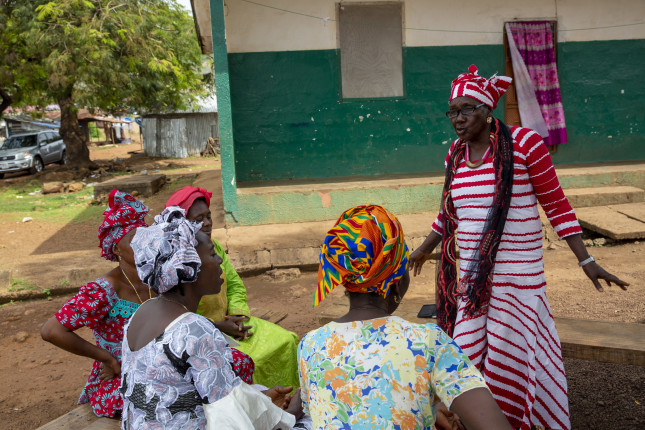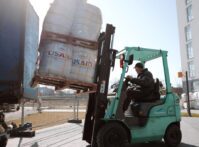-
Turning Power on its Head: A Meaningful Shift Toward Localization
August 10, 2022 By Koki Agarwal
Of COVID-19’s many lessons, one is most critical to our collective next steps:
Business as usual in global health is no longer possible.
The pandemic exposed weaknesses in health systems across the world, and particularly in the delivery of equitable, high-quality reproductive, maternal, newborn, adolescent, and child health (RMNCAH) services. It also reinforced that effectively addressing these challenges requires rapid, responsive approaches driven and owned by countries and local institutions.
But lasting change doesn’t come from the outside. It must be led by communities and the local organizations they support. But how do we continue to make a meaningful shift toward localization?
To begin, we need a more expansive approach to partnerships than commonly exists today. These partnerships must be flexible, responsive and, above all, locally-led. Accomplishing this requires openness to new mechanisms of working, new principles, and new partners that might not be part of “business as usual.”
Localization also requires time. Business as usual can be fast—and more superficially efficient. It takes time to create and foster new partnerships and to deploy capacity-building approaches that lower barriers for entry to partnerships. Such relationships are not built overnight, but they are essential to accelerating progress toward global health goals that have been hampered by COVID-19.
Lastly, localization requires a true shift that centers leadership and priority-setting in countries and communities. Turning power on its head is where transformational change will begin. Leading this change—ensuring our local partners are driving their countries’ progress, not the other way around—may seem ironic. But that is where change actually begins.
What does this look like in action? For MOMENTUM Country and Global Leadership—part of the MOMENTUM suite of awards funded by USAID to holistically improve voluntary family planning and maternal, newborn, and child health services in partner countries around the world—organizational development is an integral part of our country support. We’ve engaged with more than 100 local partners to help them contribute to national RMNCAH goals in their countries.
In Nigeria, our six local partners are demonstrating improved capacity to prevent violence against women and girls and mitigate its consequences. In Sierra Leone, our partner Health Alert is strengthening the capacity of 55 national- and district-level organizations to advocate for the reduction of teenage pregnancy, as well as increased funding and political focus on sexual and reproductive health for adolescents and young people.
Across MOMENTUM Country and Global Leadership’s priority countries, locally-led partnerships like these fuel our work. With partner institutions and local organizations, we identify pressing health challenges—then design and implement solutions, together, to get the job done. We measure our achievements by the health of the countries we serve. Are they rising to meet new challenges thanks to our partnership? Are we leaving communities and nations better equipped to use their own resources to improve health services?
COVID-19 only further highlighted the need for local responses and local ingenuity. The last three years have shown us that the cost of not changing, of not adjusting our approach to methods and partnerships, is too high. Even before the global pandemic hit, the world was falling short of reaching reach most of the health-related SDGs by 2030. We’re even further off track now, with countries moving at only about one-quarter of the pace needed to reach the SDG health targets on time.
In this new world, customary methods and partnerships can no longer guide us. We must center the voices, expertise and lived experience of those whom we serve in every decision we make. For our part, MOMENTUM Country and Global Leadership is leaning into partnerships that foster community-led change. We are strengthened by our shared belief that a healthy, self-determined citizenry is best equipped to overcome today’s challenges and embrace tomorrow’s opportunities.
As we feel our way forward, led by—and responsive to—those who know their communities best, I’m reminding myself often of the old adage: the only constant in life is change.
We must accept change.
We must adapt with change.
We must embrace change.
We must lead change.
Read More:
- Adolescents can be fundamental partners in ending gender based violence
- Health system resilience is critical to deliver essential maternal health services during a pandemic
- Strong community partnerships lead to sustained health care quality improvement
Dr. Koki Agarwal is the Director of MOMENTUM Country and Global Leadership, and Vice President of D.C. Operations for Jhpiego
Sources: USAID MOMENTUM
Photo Credit: Women in Tombo, Sierra Leone participate in a community meeting facilitated by FOCUS 1,000, a non-governmental organization in Sierra Leone working to improving the health and well-being of children within the first 1,000 days of life. MOMENTUM Country and Global Leadership supports FOCUS 1,000 to integrate family planning into its robust community engagement work. Courtesy of Karel Prinsloo/Jhpiego.
 A Publication of the Stimson Center.
A Publication of the Stimson Center.







